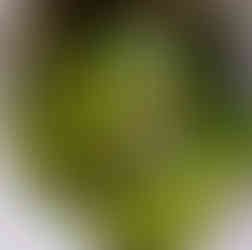In my last post, I briefly explored the ontology of food, suggesting that both humans and food are fundamentally made of the same stuff, differing mainly in their organization and orientation. While they require different things to maintain health and balance, they have ‘worked out’ how to coexist harmoniously within the same ecosystem—so long as nothing disrupts that balance. However, we find ourselves out of balance, which diminishes our ability to act from a place of power. As Jean points out, it is increasingly difficult to find sources of balanced, powerful food that can sustain our health.
Yet, Jean remains undeterred, believing that we can still nourish ourselves well if we bring more intention and care to what we eat and how we prepare it. Even though our food sources may be ‘weak,’ skilled chefs can still create balanced, nutritious, and powerful dishes.
One example is a typical meal served at the Concord Institute (one of Jean's schools), where participants might enjoy a soup or salad as a starter, followed by a main dish of grains, beans, and a mix of vegetables. Sometimes, there’s fish, tempeh, or tofu. This combination provides a healthy mix of carbs, proteins, and fats. Concord chefs also enhance these meals by incorporating fermented foods like miso, cooking with rich stocks, and adding seaweed, seeds, or nuts. The dishes are nutrient-dense and delicious, but they’re also complex. I’m beginning to realise that this complexity isn’t just a reflection of the chefs’ skills and passion—it’s a necessary counterbalance to the weakened strength of individual food sources. Perhaps, in the past, a simple carrot soup with a bit of salt would have been just as nourishing.
Dishes created in Jean's class - Photo Credit: Peter Baert]
There are many rules and recipes to guide a chef through this process, but Jean relies on a deeper ‘guidance’—his own experience of cooking. As someone who is part of a larger ecosystem seeking balance, Jean believes he can sense and feel not only what food we need but also how best to prepare it. He likens this ability to that of a shaman who, when called to heal someone in their village, would venture into the forest to find the right medicinal herbs. The shaman might have some knowledge of what could help, but primarily, they would communicate with the plant kingdom—listening through their body and waiting for an answer. The plants would tell them what they needed and even how to prepare it.
I understand some readers may find this analogy too mystical, but consider your relationship with food. When you’re hungry, how do you decide what to eat? You might have planned to make curry for dinner, but if the weather is unexpectedly hot, you might crave something lighter. Instead of baking chicken for the curry, you might pan-fry it for a salad. Similarly, when you’re sick, you might naturally gravitate towards soups and teas instead of your usual meals. In these moments, you’re following your body’s instincts, searching for the food that ‘speaks to you.’ This intuitive approach contrasts with the scientific method of analyzing a food’s chemical composition to determine its benefits. While the scientific approach is valuable, it can’t always keep pace with the ever-changing nature of our bodies and the environment. Imagine what it would be like if we could trust and refine these instincts even more.

[AI Generated Image]
Reflecting on my supermarket experience, I become increasingly aware of a disconnection. Despite my concerns about plastic-wrapped vegetables and their impact on the ecosystem, I find myself standing in the aisle of a large corporation, surrounded by produce that’s been transported from faraway places. I pick items from my shopping list, pay at the till, and take them home to store in the fridge until I’m ready to cook them. But at what point in this process am I truly ‘in communication’ with the very beings I rely on for nourishment? When do I remember or feel that I am part of an ecosystem? What does this mean for our overall experience as human beings and our ability to evolve with the planet we inhabit?
I will explore these questions in my next post.
Links:
Jean Torne https://www.wholefoodkitchen.co.uk/
The Concord Institute: https://integralstudies.concordinstitute.com/
Peter Beart (photography): peterbaert.com
Wye Philosophy's Event:

Annie's Online Circles about the Philosophy of Food starts in September.









Comments